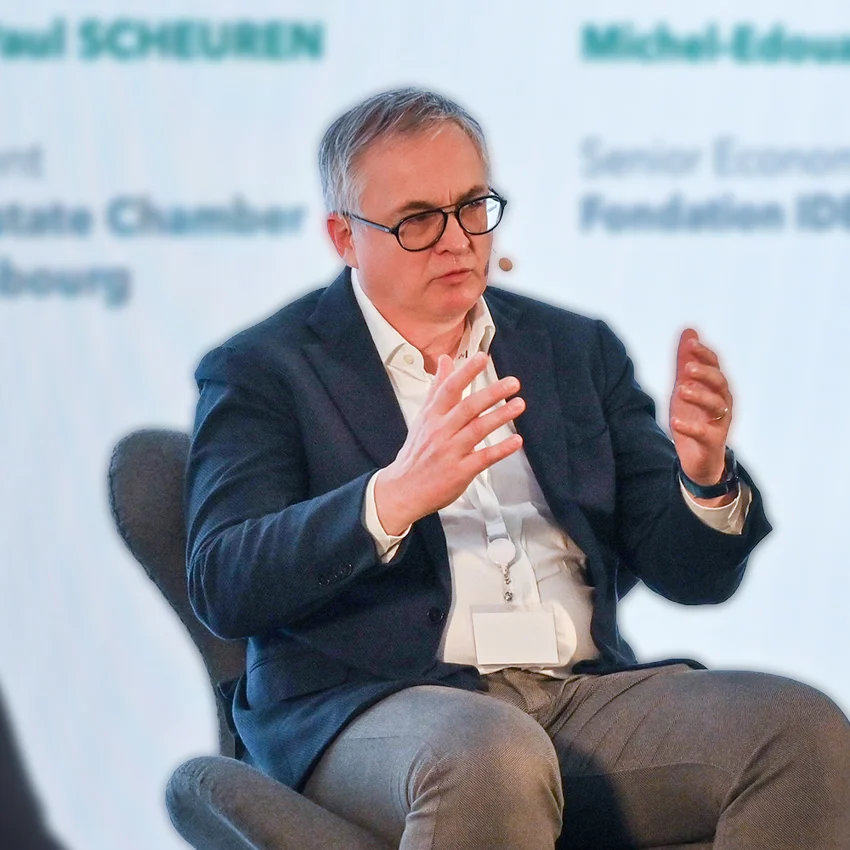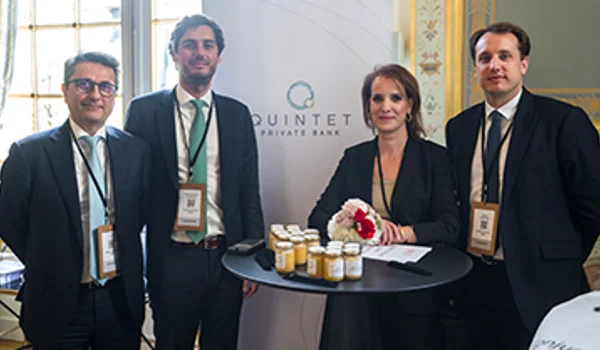
Head of Real Estate Practice - Dentons Luxembourg
Martine Gerber-Lemaire
“At the very least, we have to admit that the current government put the housing crisis and climate change at the center of its mandate. On 15 May 2024, a series of new laws were approved, including temporary and long-term tax and incentive measures for owners and investors, and a month later on 19 June 2024, the government also decided to help property developers, with the aim of building more and faster, summarized below:
- Administrative simplification to modify and obtain urban and administrative permits, with:
- creation of a universal "Réglement des Bâtisses" for the Grand Duchy of Luxembourg,
- harmonization of environmental and energy standards with a unique one-stop digital platform.
- creation of a consultation platform on PAP to help project owners and reduce delays in obtaining PAP, and a digital one-stop shop for building permits with reduced mandatory administrative delays;
- New measures for nature protection to speed up permitting procedures, such as "once and for all" compensation for hunting species, removal of protected status of biotopes that are frequent and rapidly developed, but with the obligation to install sustainable ecological elements on at least 10% of the surface of new neighbourhoods;
- New public-private partnership for affordable housing with pilot projects on private lands or for employee housing;
- Direct acquisition by the State of certain VEFA program from developers (800 units and 480 million euros).
Finally, on 18 June 2024, the Government presented a bill of law on the reform of the environmental and climate protection aid scheme for enterprises, with various subsides and support, including also administrative simplification. In conclusion, we expect to see a recovery in the housing sector by the end of this year and more significantly in 2025, with more and more green buildings.”
Chief Executive Officer - ABBL
Jerry Grbic
“Since the start of the year, our members have seen renewed interest in mortgages.
There are several reasons for this:
- Our fellow citizens, having got over the shock of rising rates, are slowly getting used to this ‘new normal’ of interest rates returning to their historical average. They have taken on board the fact that interest rates will not rise in the medium term - the recent cut in key ECB interest rates reinforces this idea - but they also understand that we will not be seeing interest rates close to zero any time soon. But the key word here is predictability.
- This predictability, combined with the announcements by the government, the CSSF and the Systemic Risk Board - which are largely a reiteration of the proposals that banks have been putting forward for months - and the concrete measures taken by the banks - such as the creation of an SPV to support the construction of residential housing - is bringing back a surplus of serenity and should help to revive the market.”


Senior Investment Advisor, Capital Markets - INOWAI
Morgan Mével
“In the last six months, the slowdown in the Luxembourg residential market is still ongoing.
On one hand, “off plan” property sales are on hold, except the projects that will be delivered in the coming months. Purchasers are reluctant to sign pre-sale agreements because of the uncertainty on the solidity of the developers/constructors and the access to financing has shrunk.
On the other hand, the existing market is performing better, with sales without negotiation in some cases.
After two years of experiencing a difficult market, some developers are in lack of liquidity and seek to sell lands even at a loss. Some others are rethinking entirely their projects to increase their efficiency and returns, eg. in developing co-living projects. Additionally, the State and the city of Luxembourg purchased some strategic lands from developers to increase affordable housing. New measures were announced by the government to simplify and accelerate building authorizations.
Finally, we observe a certain decrease of values in the office market comparing to the peak in 2022 even if Luxembourg is demonstrating more resilience than the neighbours’ countries in this current period.
Two core transactions were closed in the first half of 2024 with the sale of the Royal Park building at a yield of 4.75% and the Hygge building in the CBD on which INOWAI acted as buy side agent. These deals mark the return on the market of family offices. However, institutional investors, which were yesterday the main actors of this market are today on the observer seat with difficulties to raise new equity.
We hope that the recent 25 basis point decrease in key ECB interest rates and the expected coming one might relaunch the activity in the real estate market by the end of the year.”
Senior Economist - Fondation IDEA
Michel-Edouard Ruben
“According to a method cited by RTL, which considers a person to be wealthy if they make at least twice the median income, you are rich in Luxembourg if you earn at least €7.490 net/month.
According to figures published by l’Observatoire de l’Habitat, the average transaction price of a new dwelling in Luxembourg (the country, not the city) was €10.119 in 2023.
Assuming a person earning exactly €7.490 per month decides to purchase a new 60 m² apartment and takes out a loan of €607.115 (the average price for the 60 m2) at an interest rate of 4% over 25 years, that person would need to repay €3.204 every month, representing a debt service to income ratio (i.e. principal repayment and interest payments as a share of disposable income) of 43%.
Given the increasing number of one person households in Luxembourg, the fact that even a wealthy individual earning up to €7.490 a month would need to "spend" more than 40% of their income to buy a 60 m² apartment should, perhaps, prompt reflection and concern about Luxembourg's ability to remain a nation of homeowners.”


President - Real Estate Chamber Luxembourg
Jean-Paul Scheuren
“The housing market for existing objects seems to find back some dynamism.
The sales for new objects (VEFA) are slowly starting again (against a quasi-absence of contracts over the last 12 months).
The new measures defined by the government and specially the subsidies on interest coupled to a decrease of the interest rates seem to have a positive impact.
The new SPV created by some of the major private banks will also allow projects to be started in short notice.
The investors are still somewhat in a waiting position but opportunistic strategies can be observed.
From the offer side, we see that prices have been adjusting to the actual situation (basically back to prices of 2021) but we anticipate a new price increase, even if slower, because of a lack of offer.
A major stumbling block is the intermediary credits in case where you have to sell a property to buy a new one. These are still considered as risky by the banks. Here we need to see a real trend of reduction in interest rates to impact the market positively.
In global we are seeing the end of the tunnel for the housing market but it is still only a small opening and sales can be accelerated only by more trust in the market: trust in the correct prices, trust in the sustainability of developers and their contractors, trust in the future decreases of interest rates.
Today it is less a combination of hard economic factors than a positive communication that will bring back trust to the market.”
Our latest insights
Discover our insights into the latest investment news and trends. Find out the information you need to know to better understand how to invest and manage your money.
This document and the information and data that it contains relating to products, services or financial instruments, as well as any analyses, assessments, suppositions, judgements, opinions, and estimates presented therein (the “Information”) has been prepared by Quintet Private Bank (“Quintet”) for your exclusive and private use in the provision of personal investment advice by Quintet on the basis of your risk tolerance and suitability. Prior to any transaction or investment in the product, you should make your own appraisal of all the risks, including, but not limited to, the risks from a financial, legal, tax and accounting perspective, without relying exclusively on the Information contained in this document. Please note that the past performance of a financial instrument is not an indicator of its future performance. The Information may be changed at any time without advance notice or any notification being sent to you. Any projections and forecasts are based on a certain number of suppositions concerning the current and future market conditions and there is no guarantee that the expected result will ultimately be achieved. While the Information has been established on the basis of reliable sources and is therefore presumably correct at the date of publication of this document, it is provided with no guarantee, either express or implicit, as to its completeness, accuracy, authenticity, timeliness, validity or relevance and no liability is accepted by Quintet in this respect. This document and the Information, content, text and illustrations are the property of Quintet and/or third parties contractually linked to Quintet. It is forbidden to copy, publish, distribute, transmit or reproduce, either in whole or in part, the Information contained in this document.
Execution & Treasury services, Structured solutions & OTC derivatives
Access to Financial Markets









